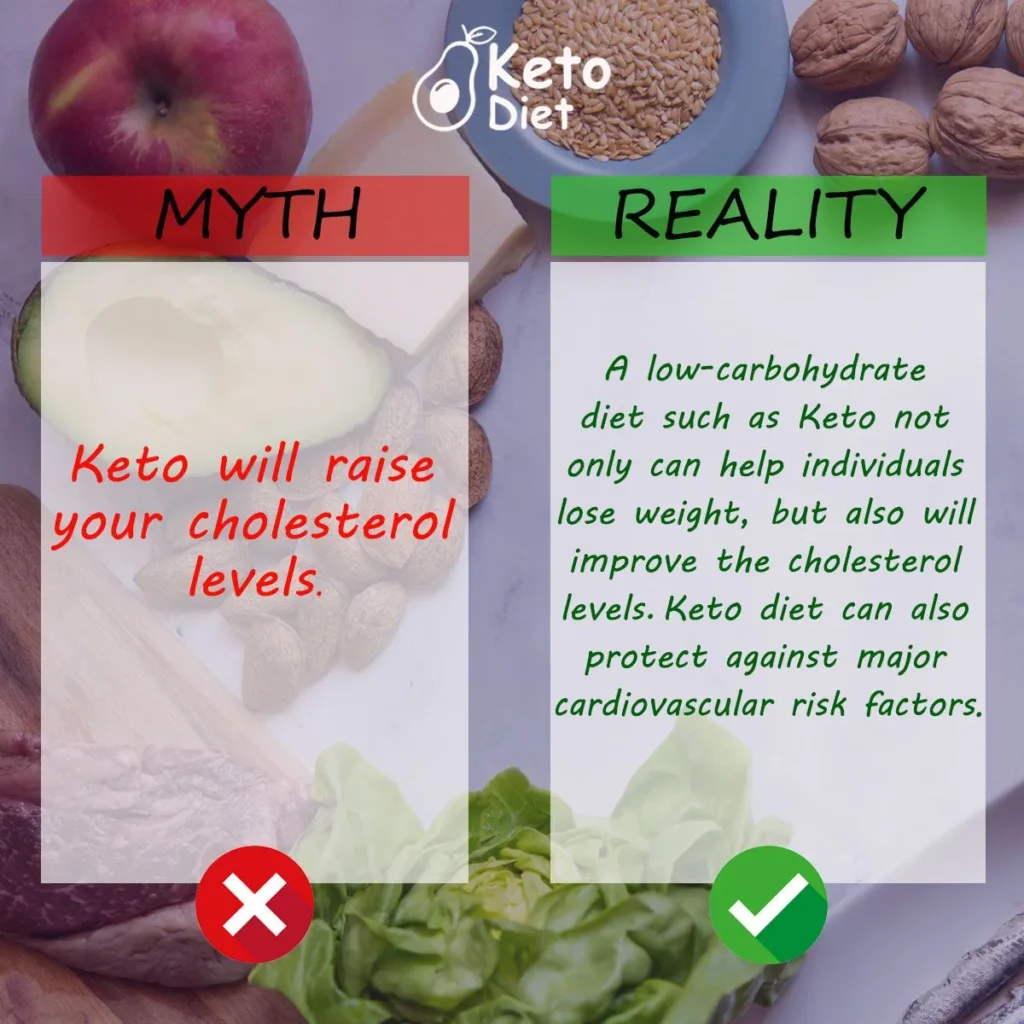
The ketogenic diet has gained popularity in recent years for its potential to aid in weight loss and improve overall health. However, there are concerns about the impact of the diet on cholesterol levels. Some critics argue that the high fat content of the keto diet could lead to an increase in cholesterol, particularly LDL cholesterol, which is often referred to as “bad” cholesterol.
But what is the truth about keto and cholesterol? Are these concerns valid, or are they simply myths? Let’s examine the facts.
First, it’s important to understand that not all cholesterol is created equal. Cholesterol is a fatty substance that is essential for the body’s normal functioning. It is used to produce hormones, build cell membranes, and aid in digestion. There are two main types of cholesterol: LDL (low-density lipoprotein) and HDL (high-density lipoprotein). LDL cholesterol is often referred to as “bad” cholesterol because high levels of it can lead to plaque buildup in the arteries, increasing the risk of heart disease. HDL cholesterol, on the other hand, is often called “good” cholesterol because it helps remove LDL cholesterol from the bloodstream.
On the keto diet, the majority of calories come from fat, with a moderate amount of protein and very few carbohydrates. This can lead to an increase in LDL cholesterol levels in some individuals. However, it’s important to note that not all people will experience this increase. Some studies have shown that the keto diet can actually improve cholesterol levels by increasing HDL cholesterol and reducing triglycerides, another type of fat in the blood that can contribute to heart disease.
It’s also worth mentioning that the relationship between cholesterol levels and heart disease is complex and not fully understood. While high LDL cholesterol is a risk factor for heart disease, it is not the only factor to consider. Other factors, such as inflammation, blood pressure, and genetics, also play a role in determining an individual’s risk of heart disease.
Ultimately, the impact of the keto diet on cholesterol levels will vary from person to person. If you are concerned about your cholesterol levels while on the keto diet, it’s important to monitor them regularly and consult with a healthcare professional. They can help you determine the best course of action based on your individual health profile.
In conclusion, the truth about keto and cholesterol is not black and white. While the keto diet may lead to an increase in LDL cholesterol levels for some individuals, it can also have beneficial effects on overall cholesterol levels. As with any diet, it’s important to consider all factors and consult with a healthcare professional to ensure that you are making the best choices for your health.